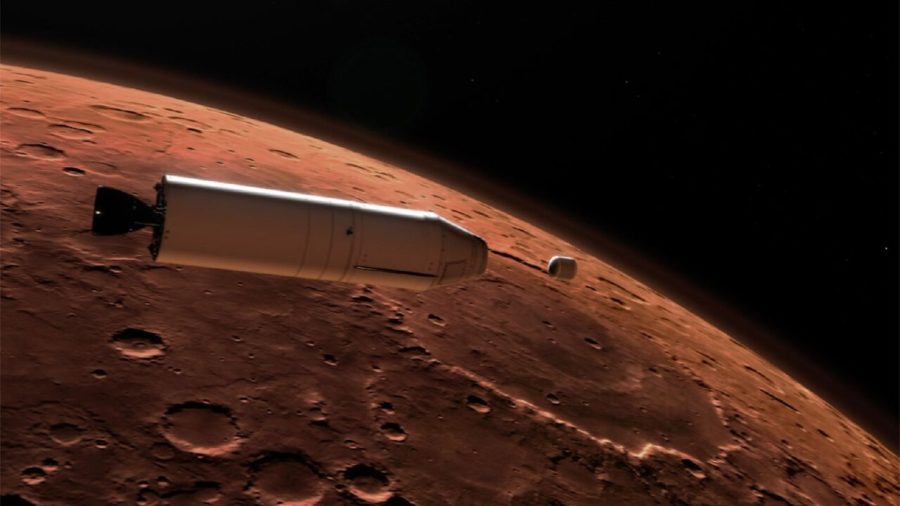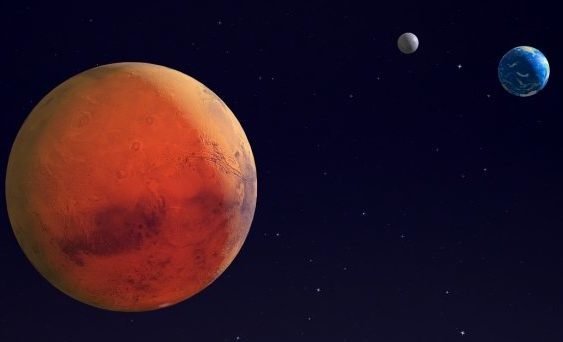Crazy as it may sound, some prominent scientists from various fields of study believe there are clues showing that all life may have originated from Mars
The following written content from Caroline Delbert

If life spread from somewhere else in our galaxy, it’s likely to have gotten to Mars first. Scientists hope to find DNA scraps on samples of material from Mars.
Could life as we know it have begun on Mars instead of Earth? A handful of scientists believe so, and even more think we should at least consider the possibility.
This special case of the overall theory of panspermia, where life on Earth began somewhere else and traveled or was planted here, has some prominent supporters. In a new Salon article, these proponents say the theory makes intuitive sense based on what the two planets are like.
Let’s review the facts. First, no one knows for certain where and how life began. We can backform theories based on what we know now, and what life is like throughout the fossil and carbon record on Earth.
Researchers also study unique qualities that Mars and Earth share compared with the other planets in our solar system, and Mars is, in many ways, a smaller, older Earth that “burned out” its natural resources and electromagnetic core sooner. (This, too, makes intuitive sense. A smaller ice cube melts faster, and a smaller piece of hot food cools more quickly.)
Scientists study genomics as a way to extrapolate the origins of life. The order in which building blocks like RNA and DNA emerged can be cross-referenced with, for example, the many dozens of Mars-based meteorites that are known to have hit the Earth over time.
This idea coalesces around the last universal common ancestor (LUCA), meaning the single cell from which all the rest of the cells on Earth descended. All living things have some most recent common ancestor—think about humans and, say, horses, whose most recent common ancestor might be some extinct third mammal species.
LUCA is different, requiring a lot more backtracking to a much further past. Could the last universal common ancestor be from genetic material that came from Mars?
Scientists believe the first life on Earth came just 200 million years after the first liquid water—and Mars panspermists point out that Mars likely had surface water before Earth based on the two planets’ makeups.
“Let’s say you expect life to be flourishing whenever a planet cools down to the point where it can start to have liquid water,” Erik Asphaug, a professor of planetary science at the University of Arizona, told Salon. “But just looking at our own solar system, what planet was likely to be habitable first? Almost certainly Mars.”
He continued: “If life was going to start anywhere it might start first on Mars. We don’t know what the requirement is—you know, if it required something super special like the existence of a moon or some factors that are unique to the Earth—but just in terms of what place had liquid water first, that would have been Mars.”
If pieces from Mars were knocked off via “ballistic” panspermia, where an impact breaks off pieces that fly and strike another planet, they could have landed and flourished in the right puddle on Earth.
Astronomers say the likelihood is greater for life to have traveled to Mars before it traveled to Earth, for very prosaic reasons. Earth is closer to the sun, and anything trying to reach us would have to avoid the sun’s enormous gravity, for example. Something traveling from outside our solar system could also be slingshotted by Jupiter’s gravity directly into Mars, for example.
One way to test this theory is to study every sample from Mars for the presence of DNA. This is the latest installment in a long, twisting narrative arc for the idea of life on Mars, from astronomer Percival Lowell’s insistence that Mars was covered in engineered canals, to the present, where we know there’s some frozen water on the Red Planet after all.
Either way, Mars’s once-molten core slowed and solidified, reducing the planet’s gravity and atmosphere to nearly nothing and removing essential protections for any life form of which we know. But cellular matter could still exist, dormant in the cold yet there to find. Read more from Men’s Health





